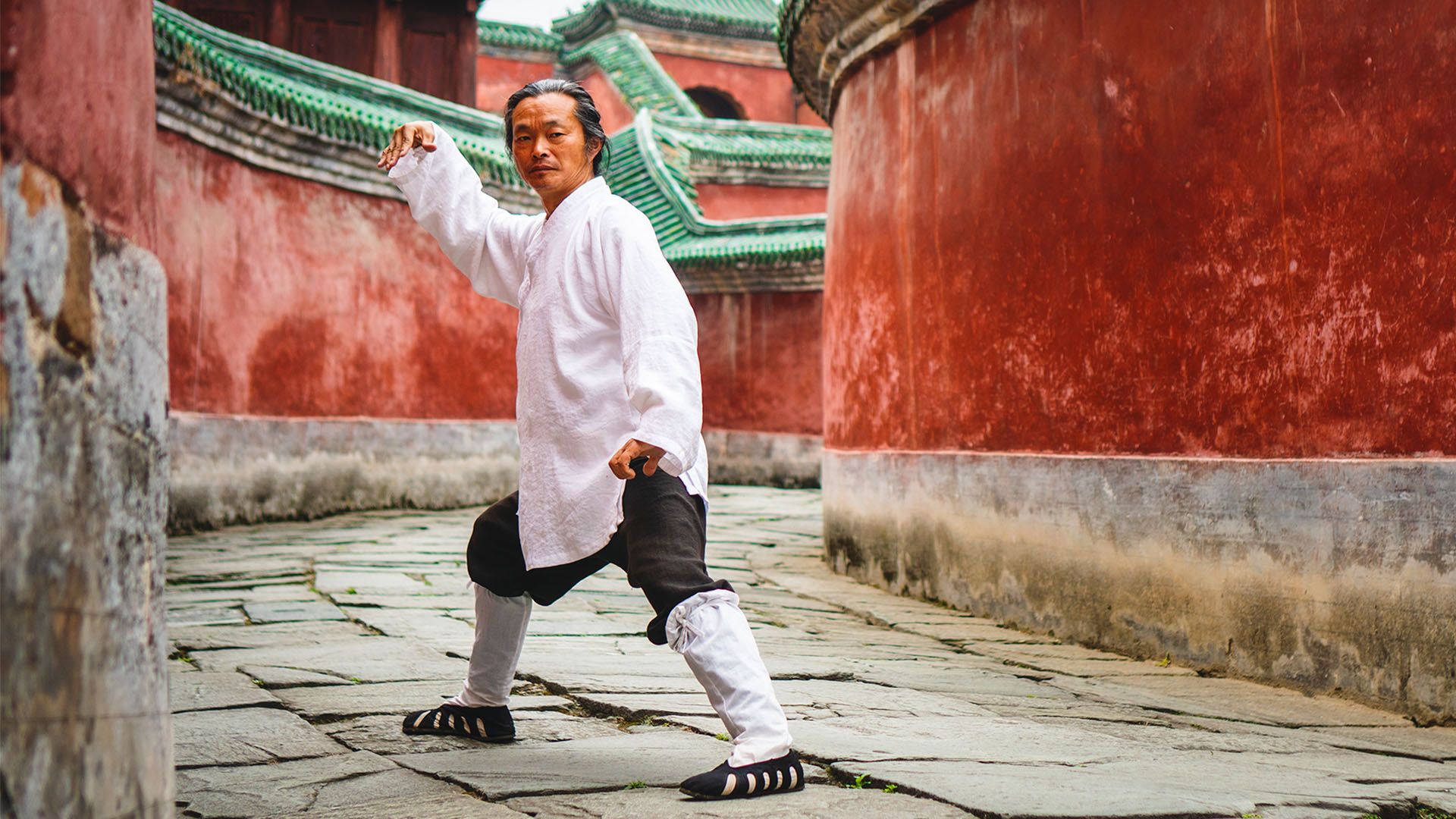Qigong vs Tai Chi: Major Differences Between Them
Dec 05, 2023
Qigong and Tai Chi are both profound practices rooted in Chinese tradition, each offering unique benefits to its practitioners. While they may seem similar at first glance, a deeper exploration reveals key differences in their origins, techniques, and overall focus. Anyone drawn to these age-old arts, whether for health, spiritual growth, or martial prowess, needs to understand these distinctions. This insight guides you through the nuances, helping you appreciate the individual characteristics and benefits of Qigong and Tai Chi.
Table of Contents
Brief Overview of Qigong and Tai Chi
Qigong and Tai Chi, two ancient Chinese practices, have garnered global attention for their profound wellness benefits. Qigong, originating from traditional Chinese medicine, emphasizes the cultivation and balance of life energy, known as 'Qi'. Its practices involve a combination of movement, breathing techniques, and meditation, aimed at enhancing overall health and spiritual well-being. Tai Chi, on the other hand, originated as a martial art. It focuses on slow, graceful movements and deep breathing to promote physical and mental harmony. While often perceived as a form of gentle exercise, Tai Chi also incorporates elements of self-defense. The term "Qigong vs Tai Chi" often arises in discussions about their benefits, highlighting the need to understand their unique attributes and applications.
The importance of Understanding Their Differences
Exploring the "Qigong vs Tai Chi" comparison is essential for individuals seeking a practice that aligns with their personal health and wellness goals. Each art form, with its distinct focus and methodology, offers unique benefits. Understanding these differences is crucial for maximizing their potential. For instance, those seeking a more meditative and energy-focused practice might lean towards Qigong. In contrast, individuals interested in more dynamic movements and a martial arts aspect might find Tai Chi more appealing. Recognizing the nuances between Qigong and Tai Chi enables practitioners to make informed decisions and tailor their approach to personal development, health, and inner balance.
Qigong vs Tai Chi: 5 Major Differences
1. Origins and History:
Comparative Analysis of the Origins: Qigong, with its roots dating back thousands of years in ancient China, is primarily a wellness practice. It evolved from traditional Chinese medicine and philosophical systems like Daoism. In contrast, Tai Chi, which originated in the 17th century, has a more defined lineage. It was developed as a martial art, integrating the philosophies of Confucianism and Daoism.
Historical Evolution: Over the centuries, Qigong has undergone significant transformations, integrating spiritual, health, and martial components. Tai Chi, while initially a fighting style, has also embraced the wellness and meditative aspects of Qigong, leading to its current form, which emphasizes fluid, graceful movements.
2. Primary Focus and Intent:
Health and Wellness Aspects in Qigong: Qigong primarily focuses on cultivating life energy, or 'Qi', to promote overall health and longevity. It involves slow, gentle movements, deep breathing, and meditation. These practices aim to enhance mental and physical well-being, reduce stress, and improve various bodily functions.
Martial Arts and Self-Defense Aspects in Tai Chi: Although Tai Chi is often practiced today for health reasons, its foundation lies in martial arts. Its movements, while slow and deliberate, were originally designed for self-defense. Practicing Tai Chi improves balance, agility, and strength, and it also teaches subtle skills for neutralizing an opponent's force.
3. Movement and Flow:
Nature of Movements in Qigong: Qigong movements are typically simpler and more repetitive than those in Tai Chi. People of all ages and physical abilities can perform these exercises standing, sitting, or lying down, making them accessible. The focus is on relaxing the body, aligning breath with movement, and cultivating internal energy.
Nature of Movements in Tai Chi: Tai Chi movements are more complex and flow in a sequence known as a 'form'. Each form is a series of movements that seamlessly transition from one to another, requiring a higher degree of coordination and balance. The emphasis is on fluidity, grace, and the continuous flow of energy.
4. Energy Work:
Energy Manipulation in Qigong: In Qigong, energy work is central. Practices involve directing Qi through the body's energy pathways, or meridians, to unblock and strengthen the flow of energy. This manipulation of Qi is believed to aid in healing and improve vitality.
Energy Flow in Tai Chi: Tai Chi also involves working with Qi, but the approach is more integrative with physical movements. The focus is on the smooth flow of energy accompanying each motion, creating a harmonious balance between mind, body, and spirit.
5. Learning and Practice:
Learning Curve and Practice Routines in Qigong: Qigong is generally easier to learn due to its simpler movements. It can be practiced in short sessions, fitting easily into daily routines. It's adaptable, allowing practitioners to focus on specific exercises that suit their individual needs.
Learning Curve and Practice Routines in Tai Chi: Tai Chi requires more time and commitment to master due to its complex forms. Regular, longer practice sessions are essential for progress. However, this complexity also allows for deeper levels of mastery and understanding over time.
Start your wellness routine with Master Gu's Tai Chi course at Wudang Taoist Wellness Academy. Choose Tai Chi for a balanced approach to fitness and mindfulness. Join us today!
Similarities Between Qigong and Tai Chi
When exploring "Qigong vs Tai Chi," it's fascinating to note their shared heritage and complementary nature. Both Qigong and Tai Chi have roots in ancient Chinese traditions, emphasizing balance, harmony, and the flow of Qi, or life energy, throughout the body. Central to both practices is the cultivation of mindfulness and the use of gentle movements to promote mental and physical well-being. These arts also stress the importance of breathing techniques, which are integral to achieving a meditative state and enhancing overall health. Moreover, both Qigong and Tai Chi are accessible to people of all ages and fitness levels, making them widely appealing to those seeking holistic health practices.
Factors to Consider
When deciding between Qigong and Tai Chi, consider the intensity and style of the exercises. Tai Chi often involves more complex movements and a greater focus on martial arts techniques. It suits those interested in a structured practice that combines self-defense skills with health benefits. On the other hand, Qigong emphasizes more energy cultivation and can be more varied in its practices. It's ideal for individuals looking for a more flexible and less physically demanding regimen. Your choice may also depend on the availability of classes and instructors in your area.
Personal Goals and Preferences
Your personal goals and preferences play a crucial role in choosing between Qigong and Tai Chi. If you aim to enhance physical strength, balance, and agility, Tai Chi might be more appropriate. It's known for its slow, flowing movements that improve body awareness and coordination. For those seeking stress reduction and a deeper connection with their inner selves, Qigong could be more beneficial. Its varied techniques, including static poses and meditative breathing, focus on releasing tension and promoting mental clarity. Ultimately, both practices offer unique paths to wellness, and your choice should align with your personal health and wellness objectives.
Conclusion
While Qigong and Tai Chi share a common cultural and philosophical background, their differences are significant. Tai Chi, often seen as a martial art, focuses on fluid movements and balance, whereas Qigong emphasizes energy cultivation and healing. These distinctions cater to diverse personal needs and preferences, making each practice unique in its approach to health and wellness. Whether seeking physical strength, mental clarity, or spiritual growth, understanding these differences can guide you to the right path. What aspects of your wellness journey resonate more with either Qigong or Tai Chi?
FAQs
1. What is the main focus of Qigong compared to Tai Chi?
Qigong primarily focuses on cultivating and balancing life energy for healing and health, whereas Tai Chi combines these principles with martial arts techniques.
2. Can beginners practice both Qigong and Tai Chi?
Yes, beginners can adapt both practices to their skill levels and physical capabilities.
3. How do the movements in Qigong differ from those in Tai Chi?
Qigong movements are generally simpler and more static, emphasizing energy flow and meditation, while Tai Chi involves more complex, dance-like sequences.
4. Which is better for stress reduction: Qigong or Tai Chi?
Both are effective for stress reduction, but Qigong's simpler movements and focus on meditation might be more accessible for immediate stress relief.
5. Are Qigong and Tai Chi suitable for all ages?
Yes, both Qigong and Tai Chi are low-impact practices suitable for people of all ages and fitness levels.







